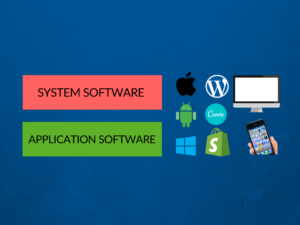Difference between Unit Testing and Integration Testing
What is Unit Testing?
Unit testing is a software testing method in which individual components or units of a software system are tested. It focuses on the smallest testable parts of the software to ensure their correct functionality in isolation from other modules.
Examples of Unit Testing
1. Testing a function that calculates the sum of two numbers.
2. Testing a class method that validates user inputs.
Uses of Unit Testing
- Verify the correctness of individual components.
- Facilitate code reusability and maintainability.
- Enable early bug detection and prevention.
- Speed up the development process.
What is Integration Testing?
Integration testing is a software testing technique in which multiple interconnected components or units of a software system are tested as a group. Its goal is to detect issues related to the interfaces and interactions between these components.
Examples of Integration Testing
1. Testing the communication between a database and an application.
2. Testing the interaction between a web server and a browser.
Uses of Integration Testing
- Verify the correct integration of multiple components.
- Detect interface problems early.
- Ensure compatibility and interoperability.
- Validate data flow between different modules.
Differences between Unit Testing and Integration Testing
| Difference Area | Unit Testing | Integration Testing |
|---|---|---|
| Scope | Tests individual components or units. | Tests interactions between multiple components. |
| Dependency | Can be performed independently, even before integration. | Requires the availability of multiple components. |
| Isolation | Executed in isolation from other units. | Tests the collaboration and communication between units. |
| Granularity | Focuses on smaller units of code (functions, methods, etc.). | Tests larger portions of the software system (modules, subsystems, etc.). |
| Complexity | Relatively simpler and easier to implement. | More complex due to the need to coordinate multiple components. |
| Dependency Management | Individual units can easily be mocked or stubbed. | Requires integration of real components, often with dependencies. |
| Test Data | Can use dummy or limited data for testing. | Requires more realistic test data and scenarios. |
| Test Completeness | Does not guarantee the final system will work when integrated. | Validates the overall system behavior after integration. |
| Execution Order | No specific execution order required for independent units. | Requires a specific order of executing integrated components. |
| Debugging | Easy to identify and isolate defects within units. | More challenging as issues may arise from interactions between components. |
Conclusion
Unit testing and integration testing serve different purposes in the software development lifecycle. Unit testing focuses on testing individual components in isolation, while integration testing verifies the interactions and interfaces between multiple components. Both play important roles in ensuring the quality and functionality of a software system.
People Also Ask
- Q: What are the benefits of unit testing?
- Q: Can unit testing replace integration testing?
- Q: Is unit testing more important than integration testing?
- Q: What is the difference between unit testing and system testing?
- Q: Are there specific tools for unit testing and integration testing?
A: Unit testing helps identify and fix issues early, improves code quality, enables faster development cycles, and supports code reusability and maintainability.
A: No, unit testing cannot fully replace integration testing as it doesn’t validate the correct behavior of components when integrated.
A: Both unit testing and integration testing are equally important in ensuring the overall quality and functionality of a software system.
A: Unit testing focuses on testing individual components, while system testing verifies the entire system against its requirements and specifications.
A: Yes, there are various tools available for unit testing (e.g., JUnit, NUnit) and integration testing (e.g., Selenium, SoapUI) in different programming languages.


